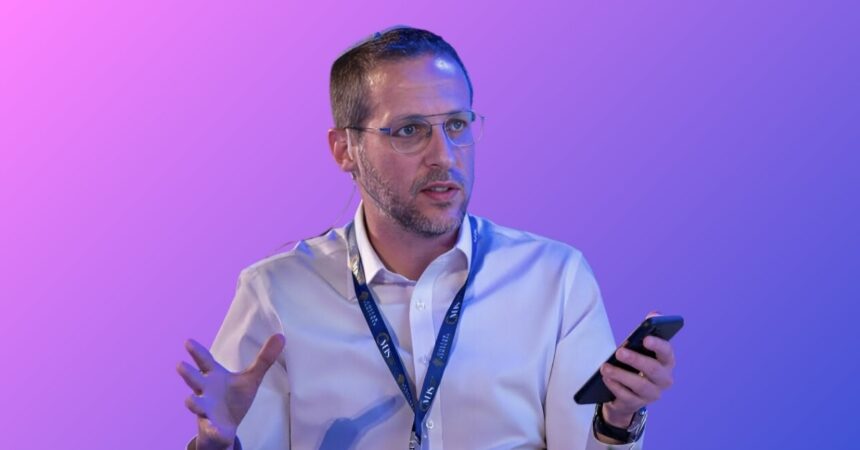Hey there! Welcome to the Hurwitz.tv “Leaders” interview series, where we chat with the leaders in tech and business to discuss the latest industry trends and developments. In this series, you’ll hear from CEOs, CTOs, and other thought leaders as they share their insights on everything from AI to Investing.
In this interview, we talk to David Lahmi from Finberry.
What productivity tips have helped you significantly?
One productivity tip that has greatly helped me is the practice of concentrating on one task at a time. This method reduces multitasking, allowing me to prioritize properly, operate in a deep state, and work more efficiently. By focusing on a single activity, I avoid decision fatigue, better manage my time, and make steady progress toward my entrepreneurial goals. This strategy has helped me discover which activities were genuinely crucial and which were less important, allowing me to better organize my time and resources for the development of my business.
What are some mindset tips you need to have when running a business?
I feel that fostering the mindset of focusing on progress rather than success is critical in business. While success is a worthy objective, it can be a distant or clouded target at times. Instead, I prefer to divide my entrepreneurial path into smaller, more achievable steps. By focusing on progress, I am able to celebrate each step forward, keeping me interested and inspired in the process.
One crucial part of this approach involves embracing a lack of fear of failure. Setbacks and problems are unavoidable in the business world. Fear of failure, on the other hand, can slow you down and prevent you from taking the necessary risks. Failure, in my opinion, is an inevitable part of the learning process. When things don’t go as planned, I look at it as an opportunity to learn, adapt, and improve. This lack of fear in the face of failure has fueled my ability to innovate and take calculated risks.
What are some of your favorite books or articles that have impacted the way you think?
I could easily react with ‘Start with Why,’ ‘Leaders Eat Last,’ or any other Simon Sinek book, but I’m sure you’re expecting it. Instead, I’d like to highlight a key influence on my thinking that comes from Lord Rabbi Jonathan Sacks’ publications. I’m a big fan of his work and study his books on a regular basis. If I had to choose one that has had the most impact on me, it would probably be ‘Lessons in Leadership’.
What differentiates ‘Lessons in Leadership’ is Rabbi Sacks’ exploration of the characters of biblical individuals that reveal priceless lessons about leadership and retaining one’s integrity as a good human being. His in-depth examination of these great personalities provides timeless insight that may be utilized both professionally and personally.
One of the major takeaways I’ve learned is that leadership is about more than just authority or power. It’s also about accountability and moral integrity. Rabbi Sacks clearly demonstrates how biblical leaders confronted numerous obstacles and dilemmas, and their decisions frequently serve as guiding indicators for anybody aspiring to be a great leader while keeping ethical ideals. ‘Lessons in Leadership’ is more than a book; it’s a source of inspiration that has impacted my attitude to leadership and humanity, reminding me that being a great leader can only happen by being a decent person.
Who is someone who has really impacted your work? It can be a family member, friend mentor, public persona, etc.
I can’t answer without remembering my late grandfather, who taught me so much. He arrived in France in the early 1960s with nothing and gradually rose to become one of the most important bankers of his time. His tolerance, brilliance, and the motivating manner in which he handled business are all excellent sources of inspiration for me. Throughout his long career, he assisted in the promotion of countless new entrepreneurs, believing in their goals and foreseeing the great businessmen they would eventually become. I miss our conversations, his wise counsel, and the lessons he gave me with love and care.
A word of advise I also have memories from almost 15 years ago, when I was part of a Sales team for a major European bank in Israel, and I had this new boss a few months before I left. We spent a lot of time on the road meeting clients together, and he gave me some advice that I will never forget: your goal should be to learn something new from every meeting, even if it isn’t immediately relevant to your line of work. After many years and hundreds of meetings, I keep sticking to this rule, and I approach each new encounter differently.
What are your thoughts on the future of technology and how it will impact business?
Technology is fundamentally changing the landscape of wealth management and finance. We are in the midst of a digital revolution centered on immediate access to real-time financial data and personalized investment strategies. Robo-advisors have emerged as game changers, making high-quality portfolio management more affordable and easily available to a broader variety of investors. Meanwhile, the rise of blockchain technology and cryptocurrencies is providing a new degree of transparency and security to financial transactions, effectively lowering the danger of fraud. Regulatory bodies are adapting to this tech-driven landscape, so staying up to date on the newest developments is critical. Furthermore, technology has no boundaries; it allows us to serve clients worldwide, opening up exciting new frontiers for broadening opportunities. It’s an amazing time to be a part of this industry!
Who would you love to have lunch with?
Tony Stark if he existed… But more seriously, if I could have lunch with anyone, it certainly would be Winston Churchill. He is a figure who not only revolutionized the world, but also shaped the world we know today. Churchill’s extravagant leadership, inventive thinking (including the invention of tanks during WWI), and unshakable commitment to his convictions are genuinely inspirational. He dared to think outside the box when it counted and was willing to take risks that challenged conventional thinking. His commitment to holding on to his beliefs even when everyone around him doubted him demonstrates his everlasting tenacity and leadership.
Churchill’s complex personality adds to his fascination. In addition to his political achievements, he was a talented artist, painter, and writer. His artistic abilities enriched his persona and allowed him to express himself in a variety of ways. A lunch with Churchill would not only provide insight into the thoughts of a visionary who played a vital role in history, but it would also provide an opportunity to study the creative and literary qualities of a great individual who made an everlasting impression on the world.







